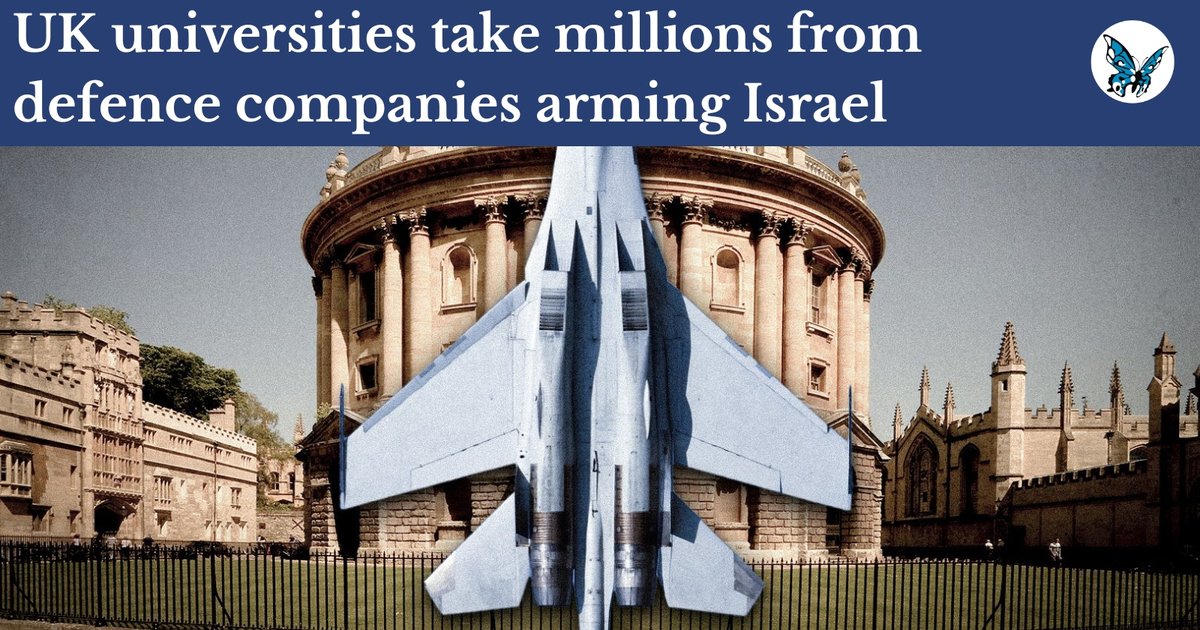Introduction
In recent years, UK universities have come under scrutiny for their financial relationships with defence companies that supply arms to Israel. An investigation by openDemocracy has revealed that these universities have accepted significant donations, funding, and sponsorships from some of the world’s largest arms firms. While these financial ties may provide financial support for academic institutions, they have raised concerns about the ethics of accepting money from a trade associated with death and destruction. In this article, we will delve into the details of this investigation, exploring the extent of these financial relationships and the implications they have on academia and the arms trade.
The University-Arms Company Nexus
The investigation by openDemocracy found that several prominent UK universities have received substantial funding from defence companies involved in arming Israel. Among these companies are Lockheed Martin, BAE Systems, Raytheon (now known as RTX), Boeing, General Dynamics, Northrop Grumman, and Rolls-Royce. These firms have either directly sold arms to Israel or indirectly supplied important components for military equipment used by the Israeli Defense Forces.
One example of these financial ties is the case of University College London (UCL) and BAE Systems. UCL accepted approximately £50,000 in sponsorship from BAE Systems to fund its Centre for Ethics and Law. However, this partnership raised eyebrows due to BAE Systems’ alleged involvement in war crimes in Yemen in 2019. This incident highlights the concerns raised by campaigners who argue that it is inappropriate for universities to accept funding from arms companies.
Funding Figures and Controversial Advisory Boards

According to the investigation, Sheffield University received the highest amount of defence funding among all institutions, with over £42 million. Oxford and Cambridge followed with £17 million and £10 million, respectively. The investigation also revealed that several universities in the prestigious Russell Group had invited arms company officials to sit on their advisory boards. At least 36 arms company officials were found to be serving on advisory boards in 12 Russell Group universities, providing guidance on academic programs.
The presence of arms company officials on advisory boards has sparked concerns about the influence of the weapons industry in academia. Students at Sheffield University have protested against their institution’s ties to the arms trade and expressed solidarity with Palestine. This controversy highlights the need for universities to reassess their partnerships with arms companies and prioritize ethical considerations over financial gains.
The Hidden Donations and Secretive Foreign Donors
The openDemocracy investigation also shed light on the issue of hidden donations and secretive foreign donors. University leaders have reportedly lobbied the government to keep the names of foreign donors confidential. It was revealed that UK universities have accepted more than £281 million in secret gifts, including significant sums from overseas sources. The lack of transparency surrounding these donations raises concerns about potential conflicts of interest and compromises academic independence.
Arms Companies’ Advice on Degree Courses
In addition to financial support, arms companies have also provided advice on degree courses at various universities. The investigation found that arms company officials have been involved in advising on academic programs, particularly in engineering fields. For example, Sheffield University acknowledged that five defence officials sit on advisory boards for their engineering degrees. This involvement has sparked criticism, as it raises questions about the influence of the arms trade on the content and direction of academic programs.
Funding Breakdown: £100 Million Over Five Years
In response to Freedom of Information requests, 44 universities disclosed that they had received a combined total of at least £100 million in funding and donations from eight major UK and US defence firms. These firms include RTX, Lockheed Martin, Boeing, Northrop Grumman, General Dynamics, BAE Systems, and Rolls-Royce. All of these companies rank among the top 100 arms and military services providers worldwide, as listed by the Stockholm International Peace Research Institute.
The investigation revealed that most of these companies play a significant role in arming Israel. For instance, RTX has been a supplier for Israel’s Iron Dome since 2014 and has provided approximately £616,000 in funding to universities such as Bath, Oxford, and Gloucestershire. Rolls-Royce emerged as the biggest contributor, providing nearly £64 million in funding. BAE Systems contributed over £20 million, while Boeing gave £14 million. Other companies, including Lockheed Martin, offered smaller amounts, such as £179,000 for research funding.
Controversies and Reactions
The investigation faced challenges in obtaining complete data, as some universities did not respond on time or denied the Freedom of Information requests. Some universities claimed that disclosing the requested information would breach confidentiality, affect commercial interests, or incur excessive costs. These obstacles raised concerns about the transparency and accountability of universities regarding their financial relationships with arms companies.
Campaign groups, such as Demilitarise Education and the Campaign Against Arms Trade (CAAT), have called for universities to sever ties with arms companies. They argue that universities should prioritize their role in shaping a peaceful and progressive world, rather than aligning themselves with the arms trade. Critics argue that accepting funding from arms companies is contradictory to the principles of education and can contribute to perpetuating conflicts and human rights abuses.
The Need for Ethical Considerations

Protesters have been targeting BAE Systems factories, urging the company to end its ties with Israel. BAE Systems has also faced accusations of being involved in alleged war crimes in Yemen. Nevertheless, documents obtained by openDemocracy reveal that BAE Systems sponsored UCL’s Centre for Ethics and Law with a significant amount of money between 2017 and 2021. While UCL has decided not to accept further corporate sponsorship, a representative from BAE Systems still serves on the centre’s advisory board.
While some universities have disclosed specific funding details, others have been vague in their responses. Cambridge University, for example, acknowledged receiving millions of pounds from Boeing and Rolls-Royce for “research collaborations” but did not provide further details. Oxford University stated that Rolls-Royce had given over £17.5 million in funding but cited confidentiality as a reason for not sharing additional information. This lack of transparency raises concerns about the nature and extent of arms companies’ influence on academic research and programs.
Conclusion
The financial relationships between UK universities and defence companies arming Israel have come under scrutiny. While these financial ties provide much-needed funding for academic institutions, they raise ethical questions about accepting money from industries associated with death and destruction. The presence of arms company officials on advisory boards and their involvement in advising on degree programs further complicate the issue. The lack of transparency surrounding donations and the influence of foreign donors add to the concerns about the integrity and independence of academic institutions. It is imperative for universities to prioritize ethical considerations and reassess their partnerships with arms companies to ensure their commitment to education and the pursuit of a peaceful world.

